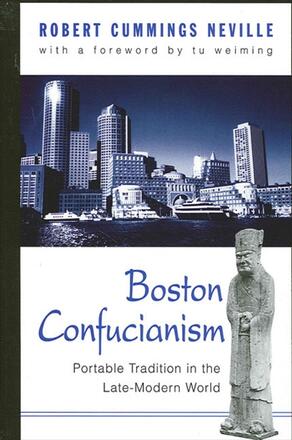
Boston Confucianism
Portable Tradition in the Late-Modern World
Alternative formats available from:
Argues that Confucianism can be important to the contemporary, global conversation of philosophy and should not be confined to an East Asian context.
Description
Is it possible to be a Confucian without being East Asian, as so many philosophers have been Platonists without being Greek? Strangely enough, many scholars would answer in the negative, citing the inextricable connection between Confucianism and East Asian culture. Boston Confucianism argues to the contrary, maintaining that Confucianism can be important to the contemporary global conversation of philosophy and should not be confined to an East Asian context. It promotes a multicultural philosophy of culture and makes a contribution to Confucian-Christian dialogue, showing that the relations among the world's great civilizations today is not a "clash," as Samuel Huntington has argued, but an entanglement whose roots are worth sorting and whose contemporary mutual developments are worth promoting.
Robert Cummings Neville is Professor of Philosophy, Religion, and Theology at Boston University and Dean of the School of Theology. He is past president of the International Society for Chinese Philosophy, the American Academy of Religion, and the Metaphysical Society of America. Neville is the author and editor of many books, including most recently The Recovery of Philosophy in America: Essays in Honor of John Edwin Smith, also published by SUNY Press.
Reviews
"Neville has written a remarkable book, rich in scholarship for both philosophers and theologians concerned with the betweenness of East and West. Boston Confucianism's goal is to accommodate 'multiple religious identities. ' In a gentle but provocative way, Neville's book brings readers to understand that the most divergent traditions must remain open to renewed and continuous dialogue. Boston Confucianism is at the source of this ongoing global dialogue. " — Dao: A Journal of Comparative Philosophy
"…[Neville] intends to show…that the complexity of late modernity demands that serious thinkers everywhere make a concerted effort 'to embrace all the traditions within the world culture of philosophy. ' This inclusive vision may be seen as his articulation of faith: 'the world society will never be civilized until a genuine world culture is developed that respects the diverse cultures and harmonizes them to make crucial responses to such issues as care for the environment, distributive justice, and the meaning of human life in the cosmos. ' Boston Confucianism so conceived is a step toward the transformation of seemingly highly specific local knowledge into a globally significant philosophical task. " — from the Foreword by Tu Weiming